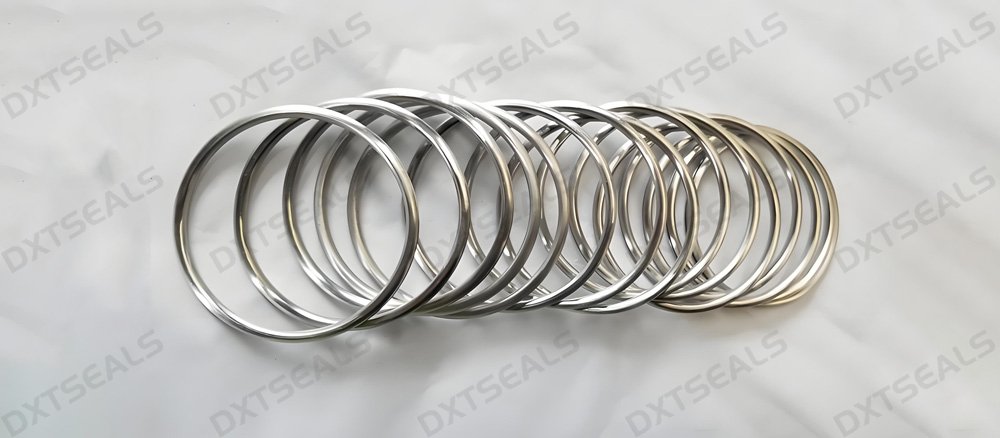Introduction
In the aerospace industry, sealing solutions must withstand extreme temperatures, high pressures, and corrosive environments. Metal seals play a critical role in ensuring aircraft safety, engine efficiency, and space mission reliability. Their superior durability, resistance to extreme conditions, and long service life make them indispensable in aerospace applications. This article explores the importance of metal seals, their advantages, and their key applications in the aerospace sector.
1. Why Are Metal Seals Essential in Aerospace?
1.1 Extreme Temperature Resistance
Aircraft and spacecraft operate in harsh environments, where temperatures can range from -200°C in space to over 1000°C in jet engines. Traditional rubber or polymer seals degrade under these conditions, while metal seals retain their integrity, ensuring leak-free performance.
1.2 High-Pressure Sealing Capability
Aerospace components often experience high-pressure fluctuations, especially in hydraulic systems, fuel lines, and engine components. Metal seals, designed to handle pressures beyond 100,000 psi, provide a tight and secure sealing solution where rubber seals would fail.
1.3 Corrosion and Chemical Resistance
Metal seals exhibit excellent resistance to corrosion, oxidation, and aggressive chemicals found in aviation fuels, hydraulic fluids, and space environments. This resistance ensures long-lasting performance and reduces maintenance costs.
1.4 Long Service Life and Reliability
Unlike elastomeric seals, which degrade over time due to environmental exposure, metal seals offer a longer service life. Their ability to withstand repeated thermal cycles and mechanical stresses makes them ideal for critical aerospace applications.
2. Common Types of Metal Seals Used in Aerospace
2.1 C-Ring Seals
- Designed for high-pressure and high-temperature environments
- Commonly used in jet engines, gas turbines, and cryogenic applications
- Provides excellent spring-back properties for consistent sealing performance
2.2 O-Ring Metal Seals
- Used in applications requiring radial and axial sealing
- Made from materials like stainless steel, Inconel, or titanium
- Ideal for spacecraft components and critical aircraft systems
2.3 E-Seals and Helicoflex® Seals
- Used in rocket engines and space applications
- Capable of handling extreme thermal expansion and contraction
- Provides a highly flexible yet durable sealing solution
2.4 Metal Gaskets
- Found in aircraft engines, fuel systems, and hydraulic systems
- Offers superior leak-tight sealing even under fluctuating pressure conditions
- Resistant to vibration, shock, and thermal cycling
3. Key Aerospace Applications of Metal Seals
3.1 Jet Engines and Turbines
Jet engines operate at extreme temperatures and pressures, making metal seals essential for ensuring efficient combustion and fuel system integrity. Metal C-rings and O-ring seals help maintain proper sealing in turbine blades, exhaust systems, and combustion chambers.
3.2 Fuel and Hydraulic Systems
Aircraft rely on complex fuel and hydraulic systems that require leak-free operation. Metal seals provide the necessary pressure resistance and chemical compatibility, ensuring the safety and reliability of these systems.
3.3 Spacecraft and Satellites
In space applications, seals must withstand vacuum conditions, radiation, and extreme temperature variations. Helicoflex® seals and C-ring seals are commonly used in rocket engines, propulsion systems, and satellite components to ensure reliability in outer space.
3.4 Landing Gear and Actuators
The landing gear system experiences extreme mechanical stress during takeoff and landing. Metal seals provide enhanced durability and leak-proof protection for hydraulic actuators and shock absorbers, reducing the risk of failure.
4. Advantages of Using Metal Seals in Aerospace
✅ Superior Strength and Durability
Metal seals are built to endure extreme mechanical loads, pressure variations, and environmental stresses, ensuring long-term reliability.
✅ Exceptional Temperature and Chemical Resistance
From cryogenic temperatures to high heat applications, metal seals maintain their sealing integrity, making them ideal for jet engines, fuel systems, and spacecraft.
✅ Extended Service Life
Unlike elastomeric seals, which degrade over time, metal seals offer long-lasting performance, reducing maintenance downtime and costs.
✅ Enhanced Leak Prevention
Metal seals provide high-performance sealing against fuel leaks, hydraulic fluid leaks, and air pressure losses, ensuring safety and efficiency in aerospace operations.
Conclusion
Metal seals play a vital role in ensuring the safety, efficiency, and durability of aerospace systems. Their ability to withstand extreme temperatures, high pressures, and corrosive environments makes them an indispensable solution for aircraft, spacecraft, and high-performance engines. As the aerospace industry continues to evolve, the demand for high-quality, reliable sealing solutions will only grow.
By choosing metal seals, aerospace manufacturers can enhance the performance and longevity of their systems while ensuring the highest standards of safety and efficiency.

